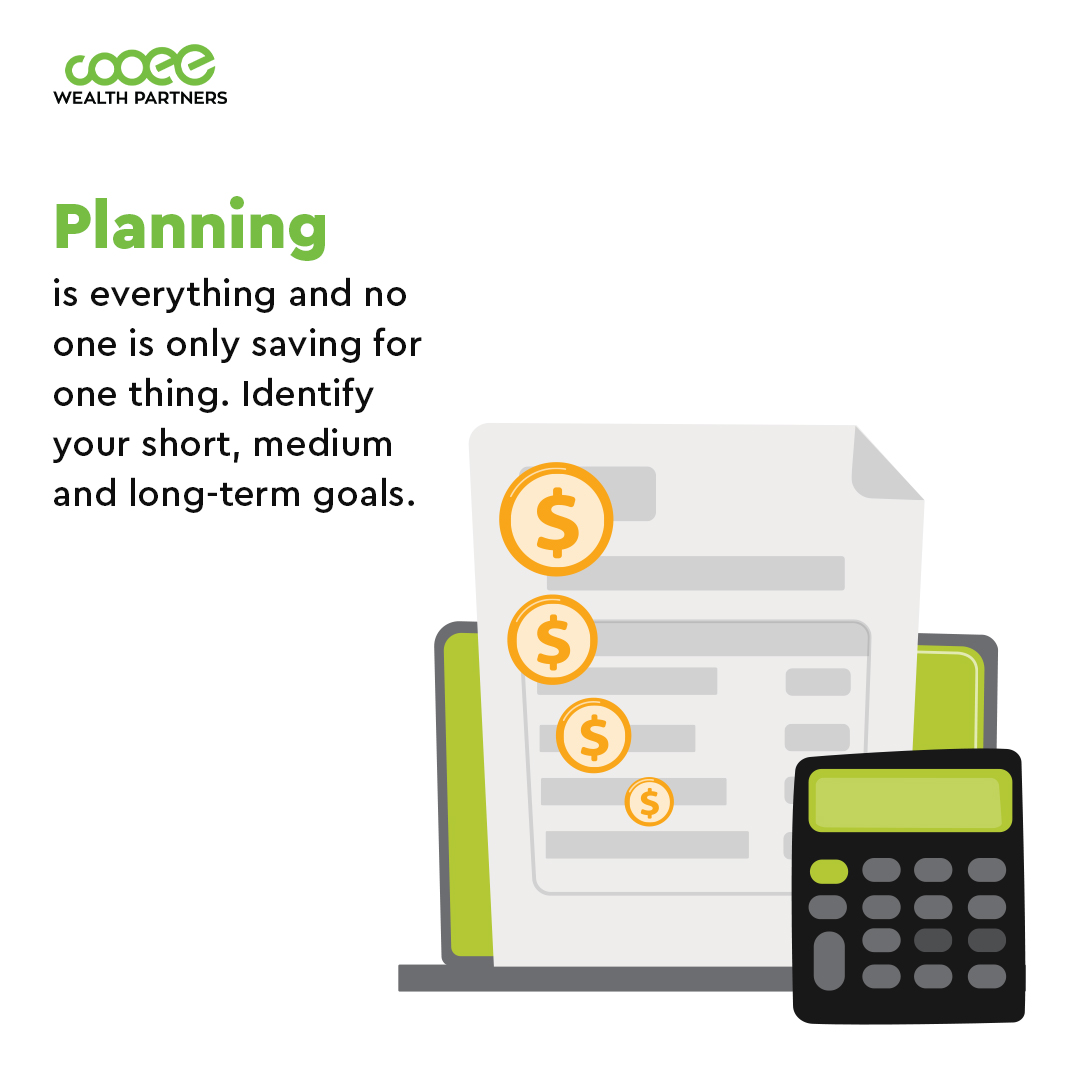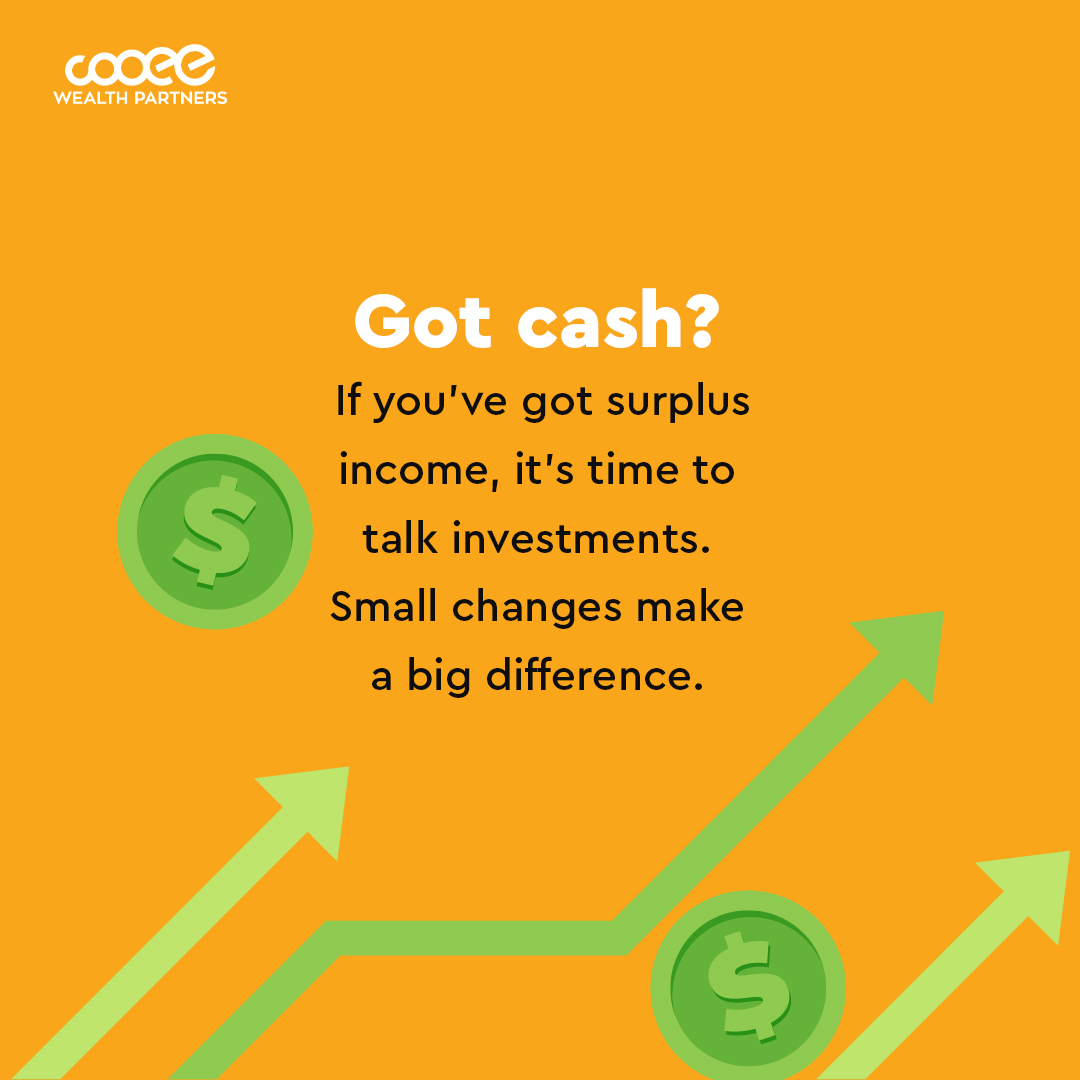
We’ll give you a few moments to get the above mentioned tune out of your head before we launch into our latest blog… it’s a great tune but this is important stuff to focus on.
Saving money is fantastic. We will never, ever tell anyone that consistent saving is a bad idea. What we will tell you, however, is that it is arguably one of the hardest ways to achieve your financial goals if used in isolation from all other investment strategies.
Before we get bogged down in the small details, first and foremost we always recommend sitting down and setting some solid financial goals for yourself. We’ve yet to meet anyone who is only saving for one thing.
Think about what you want to achieve in your finances right now, and in the future and there’s bound to be a myriad of answers: owning property, paying for kids’ education, retiring comfortably, upgrading your other assets. These are all valid and require appropriate planning — and the pure effort of being thrifty and saving will likely not be enough.
Once you’ve figured out what your short, immediate and long-term goals are, you can put your surplus cash flow and available equity to work to make your dreams into reality.

Why only saving your way to financial success isn’t the most effective
Short of cracking that multi-million dollar lotto win (we can all dream right?) building your wealth takes time. If you’re serious about long-term wealth building you’re going to need to get some excellent advice and good multi-faceted investment strategies in place.
Your goal of building wealth becomes more attainable when you channel any extra resources that you may have towards strategies that keep your funds moving. By this we mean things like investing (wisely, for growth and/or income), topping up your super contributions or buying an investment property.
There are also some things that you’re going to want to avoid. According to Due, there are four common mistakes that people make when it comes to building wealth — and we think they’re pretty on the money.
You cannot rely on your salary alone; you should never “just trust someone” when it comes to your finances and, as we’ve already briefly touched on, savings are not enough. Diverse investments are where the real growth lies.
And don’t wait to pay off your home. We know mortgages are scary but your home is also your biggest asset when it comes to equity. You cannot wait to pay off your home loan to start investing, it shortens your investment timeframe and leaves you with few opportunities for genuine and meaningful financial growth.
What it looks like when you put surplus cash to work

Let us put our teacher hats on for a moment and work you through a scenario to explain our argument.
Say we have a hypothetical investor with the following set of circumstances:
- Single
- 48 years old
- Earns $150,000 per annum
- Spends $75,000 on lifestyle
- Home value of $1,000,000 with a $400,000 debt
- Retirement income goal of $75,000 per annum from age 65
Now we want to show you how tweaking their investments can hugely change their future lifestyle, without them changing their current one.
- If this person puts their surplus income after expenses towards the repayment of home loan debt, they’ll accumulate enough retirement savings to live on $59,463 per annum in retirement.
- If they used their surplus cash flow to increase their salary sacrifice to super, they could accumulate enough retirement savings to live on $67,549 per annum in retirement. Note that this is without any change or sacrifice to their current lifestyle.
- If they went a step further and purchased an investment property for $650,000, with a rental yield of 5% and capital growth of 4% per annum, and sold it at retirement, they would be able to receive a retirement income of $78,623 per annum. Again, this is without sacrificing the current lifestyle.
Now obviously this is just an example but it clearly shows how making some simple changes now can make a huge difference in the long term. In other scenarios, our wealth partners can also incorporate other strategies tailored to your needs, such as utilising home equity to purchase further investments, debt recycling or investing some of their surplus cash flow.
The best way to put your money to work is through a financial plan
The bottom line with all of this is you can’t just sit back and wait for wealth to magically land in your lap. Just like all things worth having, it takes some thought and planning. Yes, your income and what you can save from it is important but it’s just one piece of the puzzle.
Once you have a clear financial plan in place, you can start considering what investment options to deploy to best meet your needs and objectives.
We don’t expect you to be an expert, but we do firmly believe that everyone should at least possess a certain degree of financial literacy. Having a moderate understanding helps lower your risk of being taken for a ride.
The Australian Government’s Money Smart website offers a good introductory guide to the different kinds of investments that you’re likely to encounter on your financial planning journey. They helpfully break investing into two separate categories, defensive investments and growth investments.
Defensive investments are considered low-risk investments that protect your capital and include things like bank accounts, term deposits and government bonds.
Growth investments are higher risk, but with the higher risk comes the potential for a much higher reward and, with smart choices, this is where you can expect to see capital growth and income. Growth investments include things like property, shares and private equity.
We’re certainly not suggesting you run out and throw a large portion of your hard-earned cash at the newest buzziest stock that you just saw reported on the news. And please don’t go investing in anything because your friends and family told you to… at least not until you’ve run it by some professionals.
The whole point of having a financial plan in place is that it allows you to sit back and plot the best path which will almost inevitably involve using a few different investment strategies.
Ultimately the benefit of having a financial plan is the same as any other goal-setting technique. Rather than flying blind and hoping for the best, you can make sure your money and assets are working for you in the best possible way.
No one wants to spend the better part of their lives working, only to find that once they retire, they’re struggling to make ends meet. A well-thought-out and executed financial plan is the easiest way to ensure that you are able to live comfortably and enjoy your retirement.
If you take nothing else away from this blog than one point, let it be this: Reaching your goals takes more than pure perseverance and saving money. You must combine this with the right planning and investment guidance.
If you’re not sure where to start, this is where we come in: Book a meeting with one of our experienced wealth partners to get insights that work just as hard as you do.







